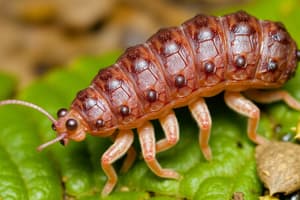Podcast
Questions and Answers
What branch of biology studies interactions among organisms and their environment?
What branch of biology studies interactions among organisms and their environment?
- Ecology (correct)
- Genetics
- Microbiology
- Zoology
Which of the following is a factor involved in ecological processes?
Which of the following is a factor involved in ecological processes?
- Musical preferences
- Parasitism (correct)
- Blood type compatibility
- Photosynthesis rate
What does emigration refer to in population dynamics?
What does emigration refer to in population dynamics?
- Growth in population size due to birth rates
- Movement of individuals away from one area to another (correct)
- Genetic mutations in a population
- Resource availability within an ecosystem
How does natural selection influence populations?
How does natural selection influence populations?
Which factors play significant roles in shaping ecosystems?
Which factors play significant roles in shaping ecosystems?
What ecological factors can influence the distribution and abundance of species in an ecosystem?
What ecological factors can influence the distribution and abundance of species in an ecosystem?
How can resource availability impact the abundance and distribution of species?
How can resource availability impact the abundance and distribution of species?
Which ecological process involves one species preying on another?
Which ecological process involves one species preying on another?
How can diseases and parasites impact ecosystems?
How can diseases and parasites impact ecosystems?
What is the goal of conservation efforts in ecology?
What is the goal of conservation efforts in ecology?
Flashcards are hidden until you start studying
Study Notes
Biology: Ecology
Ecology is the branch of biology that studies interactions among organisms and their environment. These interactions include relationships between species, between species and their physical surroundings, and within individual organisms. Ecological processes involve various interrelated factors, including population growth rates, genetics, migration patterns, climate, resource availability, disease spread, parasitism, competition, predation, symbiosis, pollution, environmental destruction, and conservation. Here's a closer look at the fascinating world of ecology, touching on different aspects of this vast field.
Population Dynamics and Genetics
Population dynamics deals with changes in the size of populations over time. These changes can occur due to natural causes such as birth rates, death rates, immigration, and emigration. Immigration is the movement of individuals from one area to another, either because of reproduction or movements to new habitats. Emigration refers to the movement of individuals away from one area to another. Genetics plays a crucial role in understanding the genetic makeup of populations and how they adapt to changing environments. For instance, natural selection acts on heritable traits that increase an organism's ability to survive and reproduce in its environment.
Climate and Resource Availability
Climate and resource availability play significant roles in shaping ecosystems. Temperature, precipitation, and sunlight influence the distribution and abundance of species in an ecosystem. Changes in climate can alter these conditions and affect the survival and reproduction of species. Additionally, resource availability influences the abundance and distribution of species. When resources become scarce, competition for those resources can intensify, leading to changes in species interactions and community structures.
Disease Spread and Parasitism
Diseases and parasites can significantly affect the composition and functioning of ecosystems. They can weaken populations, reduce fitness, and even cause extinction. Some diseases may also serve as selective agents, causing evolutionary responses in host populations. Similarly, parasitism can shape the behavior and physiology of both the host and the parasite.
Competition, Predation, and Symbiosis
These ecological processes involve the interactions between different species. Competition occurs when two or more species compete for the same resources, such as food, space, or mates. Predation is the interaction where one species, the predator, preys on another species, the prey. Symbiosis is a type of relationship in which two species benefit from each other's presence. This can involve mutualism, where both species benefit, or parasitism, where one species benefits at the expense of the other.
Environmental Destruction and Conservation
Human activities, such as deforestation, pollution, and urbanization, can significantly impact ecosystems. These actions can lead to habitat destruction, species extinction, and changes in ecosystem processes. Conservation efforts aim to mitigate these impacts and promote the preservation of ecosystems and the species they contain.
Ecology is a complex and fascinating field that encompasses a wide range of interactions and processes. Understanding these interactions is crucial for predicting how ecosystems will respond to environmental changes and for developing strategies to protect and conserve biodiversity. By studying ecology, we can gain insights into the natural world and the intricate relationships that sustain it.
Studying That Suits You
Use AI to generate personalized quizzes and flashcards to suit your learning preferences.



